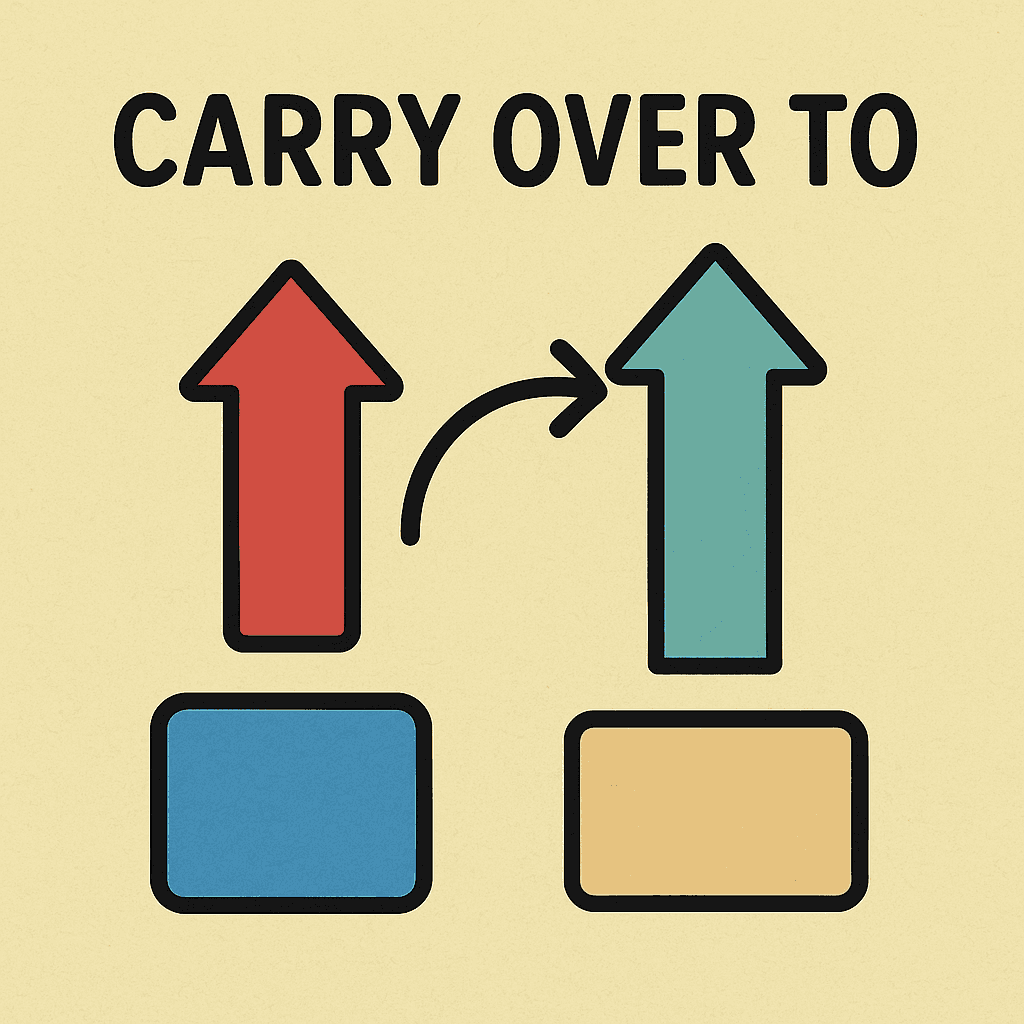Meaning
The phrasal verb carry over to means to extend, transfer, or continue something from one situation, period, or context into another. It often describes how an effect, rule, or influence in one setting continues to apply or have impact in another.
Grammar and Usage
-
Part of speech: Phrasal verb (transitive/intransitive depending on context)
-
Structure:
- carry over to + noun/pronoun
- Often used in passive form: be carried over to
Examples of structure:
- "The tradition carried over to the next generation."
- "Profits will be carried over to the next quarter."
Common Phrases
- carry over to the next day
- carry over to the next month/quarter/year
- carry over to the next generation
- carry over to other areas/aspects
Collocations
- carry over to the next (day, year, quarter)
- traditions carry over to future generations
- rules carry over to another situation
- habits carry over to daily life
Examples
- The unused vacation days will carry over to next year.
- Some cultural practices carry over to the modern age.
- The skills you learn in school can carry over to the workplace.
- His childhood habits carried over to his adult life.
- The meeting was postponed, and the discussion will carry over to tomorrow.
- The balance in your account will carry over to the next billing cycle.
- The negative effects of stress can carry over to your physical health.
- Traditions often carry over to the younger generation.
Synonyms or Related
- transfer to
- extend to
- continue into
- roll over to
Antonym
- end with
- stop at
- cut off from
